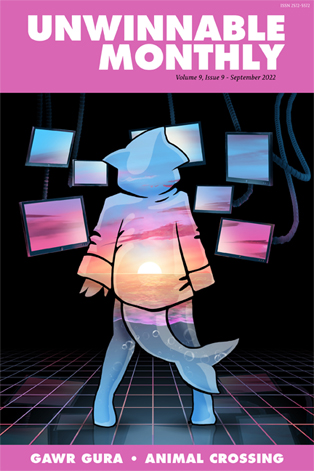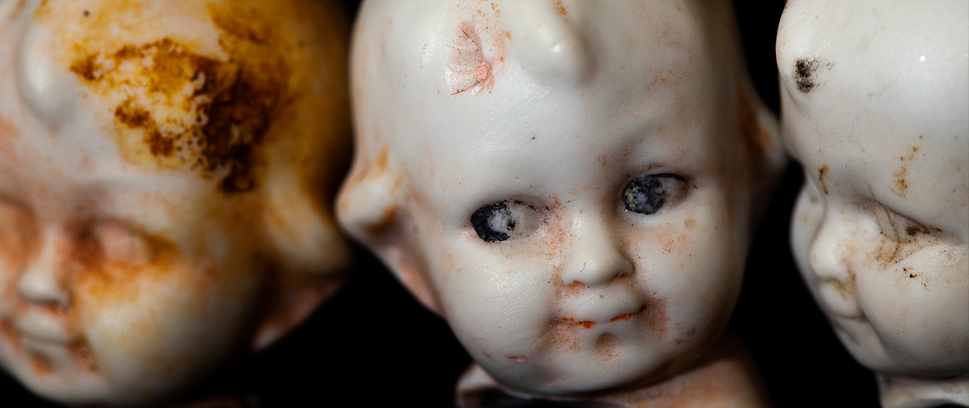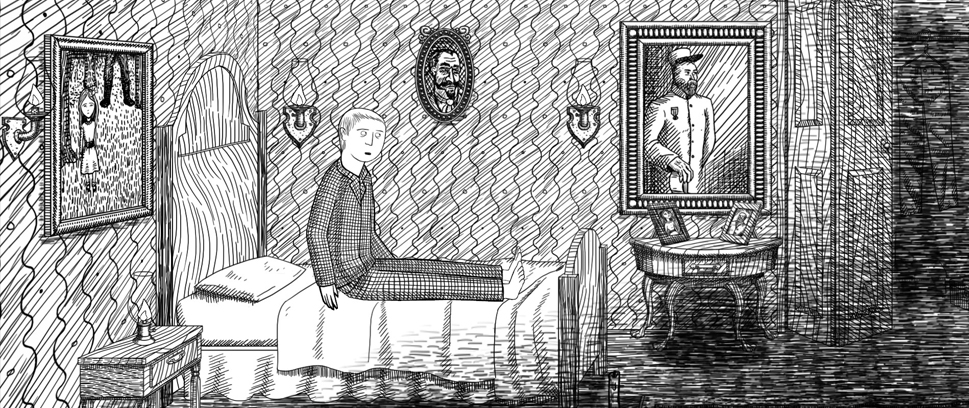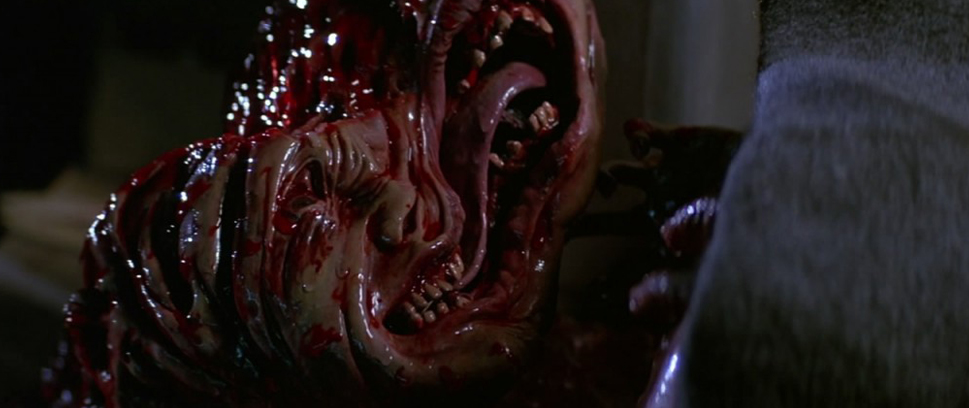
An Introduction and Manifesto

This column is a reprint from Unwinnable Monthly #155. If you like what you see, grab the magazine for less than ten dollars, or subscribe and get all future magazines for half price.
———
We are what we’re afraid of.
———
I love being scared. Movies, books, haunted houses – if there’s terror or gore to be had, I’ll gleefully participate in it all. I have another gig writing film reviews for a horror magazine (shameless plug, check out Ghouls), I’ve screened shorts for horror film festivals and I have consumed hours upon hours of every subgenre of horror, from the most messed up extremity to the schlockiest B-roll. And I love all of it.
But out of all the mediums that house unspeakable horror, I think videogames do something special. And it’s something that, while I’m sure a lot of people are thinking about it, I haven’t seen that the cultural criticism market is yet saturated with takes about horror in our interactive media. So that’s what I’d like this column to be, is an exploration of how games in particular can use and expand on what we think of as horror, and a little bit about why they’re so good at getting under our skin.
Of course, to do this, I’m going to have to do everything from thoughtfully theorize to baselessly speculate about developers, players and the games themselves. So, here’s a little bit about me, so you can decide whether or not you’ll vibe with my hypotheses. I have a Ph.D in Rhetoric and Composition, which is the part of English that doesn’t study literature exclusively, but rather looks at language more broadly. We study speeches, advertising, VCR manuals and try to figure out how all of the “ordinary” writing you encounter every day, the stuff that we don’t always think of as art, is influencing the way you think and feel. And because for so long videogames weren’t really considered “art” (though, for the record, they absolutely are), a lot of us study those, too. My professional work largely thinks about how games persuade us to believe certain things, not just through the words they use, but through their mechanics. When a game says “you win by doing this,” our brains naturally go “okay, so doing that thing must be good.” Obviously, there isn’t a 1:1 correlation – violent games don’t cause violent behavior, for example – but games still work to influence our values and beliefs, like all art does. And horror games do this in a very particular way.
My working theory, my grand idea that I’d like to convince you all of as you continue to read this column, is that the horror of videogames, and a lot of horror more generally, rests on the fear of time. You don’t do something at the correct time, you miss an opportunity, and bad things happen. Horror is all about needing to do things at the exact right time in order to succeed – hide in this specific closet, run away at this particular moment. Most of the suspense of horror happens because we know exactly what the person needs to do, and we squirm because we know they won’t do it. When you think about it, even a fear of death is really about time – you run out of time before you want to. This concept, of knowing the right moment for action, is a piece of rhetorical theory called kairos. We often think about kairos as knowing the right moment to say something in order to win the argument – as a kid, you asked your parents for special things when they were already in a good mood and not when they were upset with you. Horror hinges on kairos, because if you don’t do the right thing at the right time, your time runs out.
While horror films and books are experiences where we simply have to watch the action play out and hope that the characters are savvy, horror games scare us because they place us in the very real position of being the one who has to know what to do at what time. If we don’t push the correct button, or pick up the correct item, our player-character may shortly be in very bad shape. Games also often force us to act against what we know to be kairotically prudent – in a film you can shout “No, don’t go in the basement!” But in a game, you’re the dumbass who walks down those stairs, because that’s how you keep playing.
Being scared is one of our last undisturbed means to expand the way we think about the world around us. This may seem at first counterintuitive – we tend to avoid the things we are afraid of, and being baselessly scared of things like change, new people and situations or the unknown can lead to living a rather limited and dull life. But a mediocre existence is not itself the product of fear – it is the product of avoiding fear, of always staying in your lane, never looking in the closet or under the bed. By allowing yourself to be afraid, to actively engage with the thing causing you fear, you open yourself up to change, to new things and new understanding and even to the possibility of confronting the ultimate un-knowable.
———
Emma Kostopolus loves all things that go bump in the night. When not playing scary games, you can find her in the kitchen, scientifically perfecting the recipe for fudge brownies. She has an Instagram where she logs the food and art she makes, along with her many cats.




